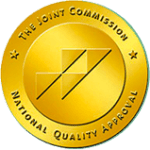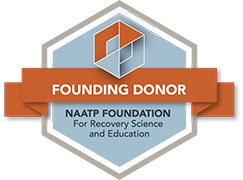Developing Successful Recovery Habits
“In recovery, recovering addicts do more than lose their addictions. Usually, they regain enjoyment of life… Most individuals want to be happy. Addicts learn that they may be happy – even joyful – by appreciating their lives in recovery. Instead of killing themselves with their addictive substances, they live in freedom.”
~Dr. Francis A. Martin, PhD, Full Life: a Spiritual Workbook for the Recovery of Addictions
Anyone who has been through recovery from substance abuse knows it’s not easy. It can be one of the most rewarding journeys of a lifetime, and creating habits that help maintain long-term sobriety is just as important as the recovery itself. The work isn’t over after recovery, it’s just beginning, but don’t be discouraged – below are some habits you can develop to stay on the path that you started.
Meditate and Exercise
One successful habit that many people have adopted is meditation and / or prayer. Early on in sobriety, many people experience tiredness, exhaustion and even sickness as their body recovers and gets used to a sober lifestyle. While this is necessary, it can be discouraging as well, and mastering a meditation practice or engaging in conventional prayer can greatly reduce stress. It’s important to take care of the body and self during a time of healing and transitioning to a sober lifestyle. Along with meditation, remember to eat healthy, sleep regularly and exercise frequently. Go for a walk or head to the gym for some exercise. This is good for both the body and the mind! Also, if possible, make an appointment with a primary care physician to get additional help and stay up-to-date with medical care. All of these small habits add up to get the body and mind back to a healthy state.
Give Back to Your Community
It’s not easy staying sober when a recovering addict is alone, or isolating themselves from supportive family and friends. Many people have found the encouragement and support they need in 12-step groups. Another great way of finding support is through a church. This isn’t for everybody, but those who find fulfillment in spiritual practice often discover it through a church. Another great way to add on to this habit is to volunteer in your community. Even if it’s something small, like greeting people at the door before a meeting, or making coffee for a group at the church. The act of volunteering, no matter how small, can be a great encouragement to the mind and soul.
Find Good Friends
One of the most important things you can do when developing new habits after recovery is being aware of your weaknesses. Knowing your weak spots will help you find the right support to resist them. If, for instance, you hang out with friends that don’t support your new habits, or stay in an unhealthy relationship, you should consider a change. If you know that isolation in the past has led to relapse, make yourself get out and grab a bite to eat, or get to know others in meting or church. Not only is this going to be a good habit, it will benefit when you need to reach out for help. Along with finding good support in friends and family, remember to steer clear of high-risk situations, like parties, bars or unpredictable situations that might entice you to compromise your new habits. In the first year of your recovery, it’s recommended to avoid them entirely. If you can’t, bring a friend along for the support.
These are just a few health habits you can start developing today to stay on the path to happiness! Remember, you’re not alone. Don’t give up!








